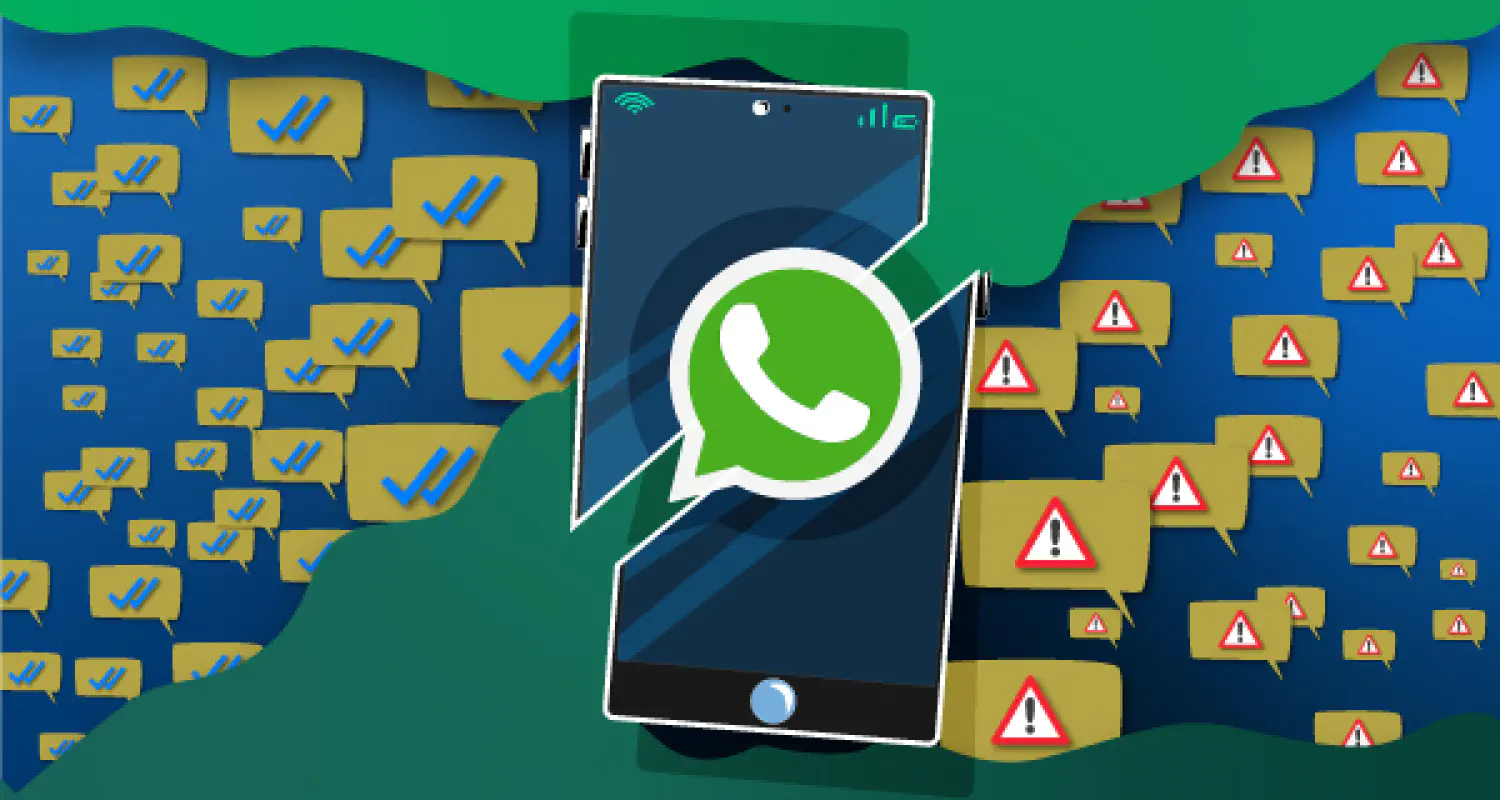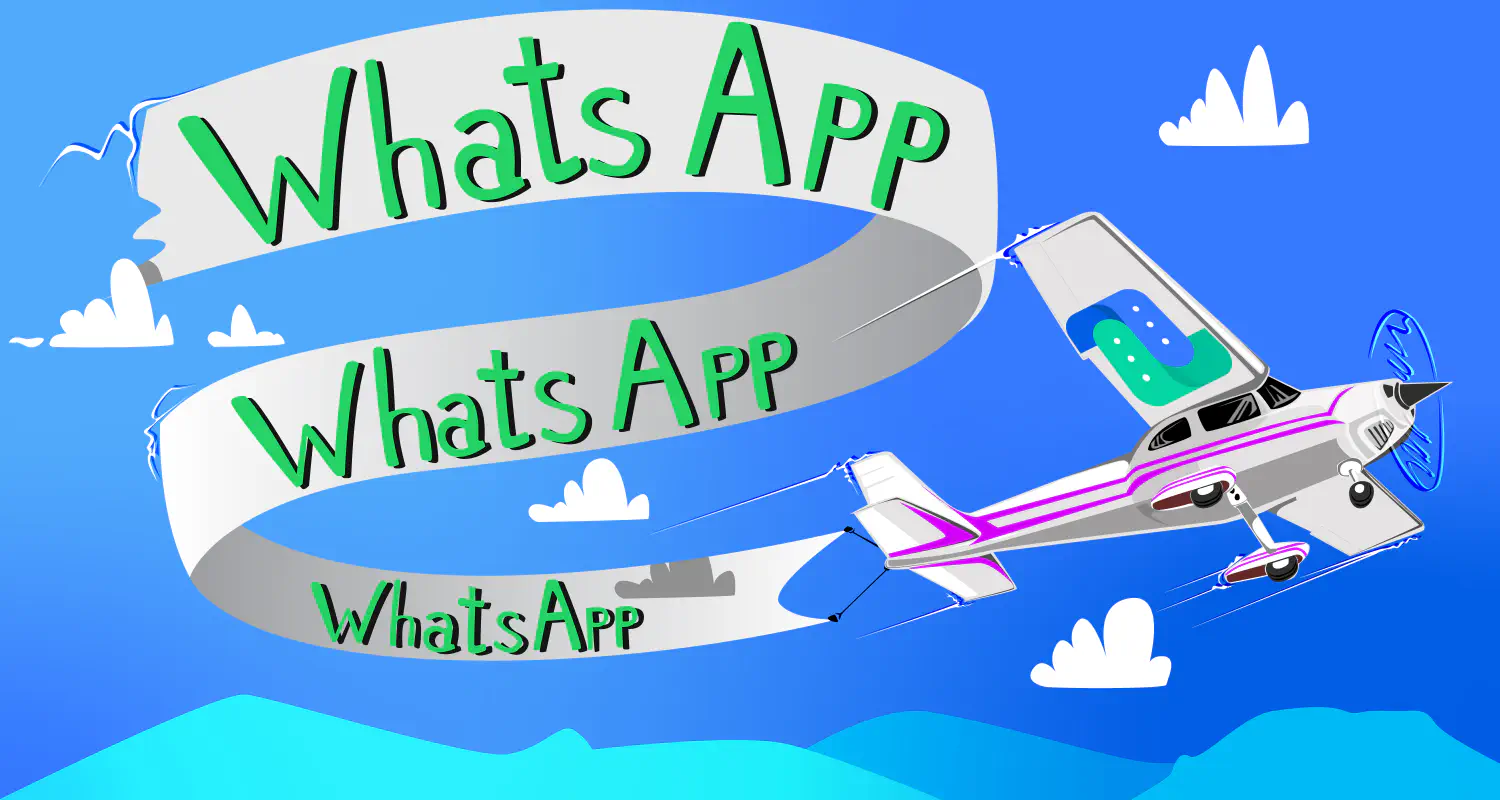7 Ways to Get Referrals on WhatsApp in 2025
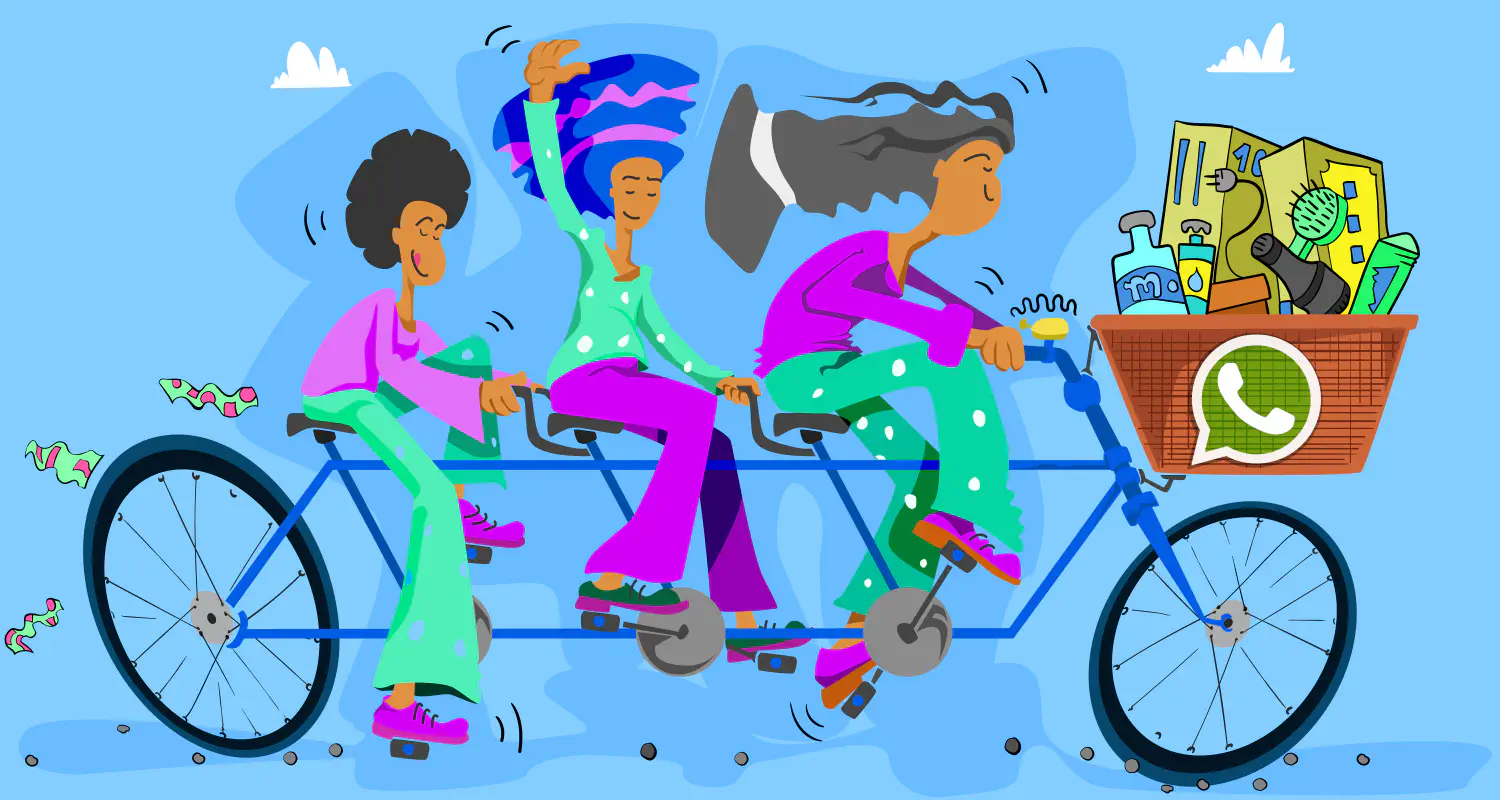
Wondering how to get more referrals on WhatsApp? Just ask! Referrals don’t happen on their own. Even your most loyal customers won’t go out of their way unless you ask them. And, what better place to ask than WhatsApp where you already chat with your customers, offer support, and build relationships?
In this guide, you’ll learn how to build a strong referral system, run loyalty programs, track referrals, and make it easy for your customers to recommend your product - all on WhatsApp.
Why referral marketing is important
Referrals make the sales process smoother and more likely to end in a yes. Plus, it’s not just about conversions. It’s also about cost and loyalty. Referrals lower your customer acquisition costs because there’s no ad spend, no outreach, and no sales push - just trusted word of mouth.
Referrals also boost brand loyalty and awareness. They turn your best customers into advocates who promote your business in their own circles.
Why use WhatsApp for your referral program
WhatsApp gives you a better chance of getting a response compared to email or SMS. It’s more personal, allows immediate communication, and it’s already part of how your customers communicate every day.
Here’s why you should use WhatsApp to run your referral program:
- Messages sent on WhatsApp are far more likely to be seen and opened than emails or texts.
- Asking for a referral on WhatsApp feels more like a normal conversation, not a marketing campaign.
- If your support and sales interactions happen on WhatsApp, that trust and familiarity carry over when you ask for a referral.
- Customers can forward your message or share a link with a single click.
- You can send referral requests directly within the conversation or in bulk with offers or incentives.
How to get referrals from customers on WhatsApp
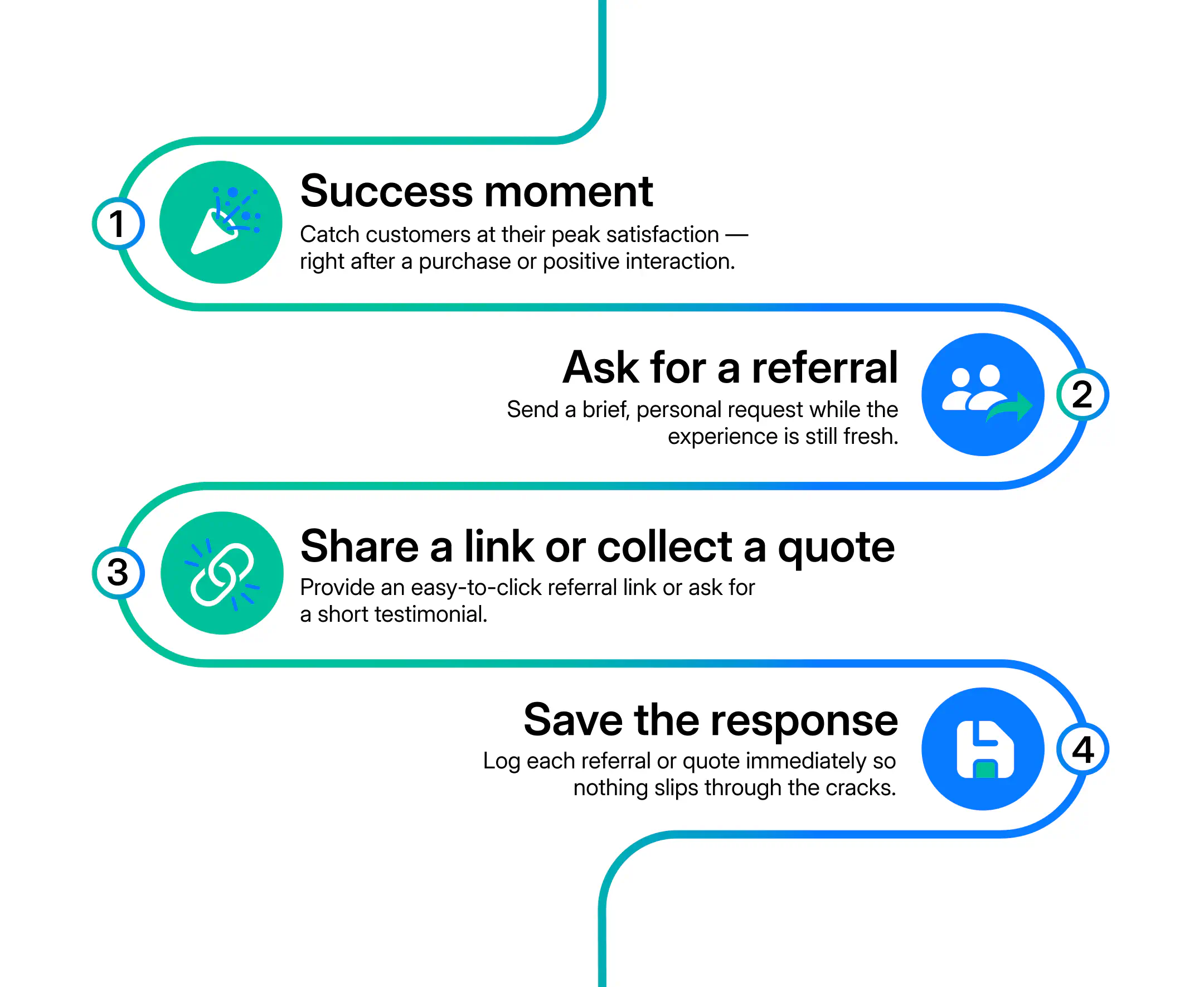
To get referrals on WhatsApp, you need a clear process. It starts with customer support, continues with well-timed messages, and works best when you make it easy to share a link or code.
Here’s what you need to do to run a functional referral program:
1. Deliver a great customer service experience
If your team struggles to respond fast or keep track of issues, customers get annoyed. In that environment, all your efforts to drive referrals are ineffective.
WhatsApp is fast and mobile-friendly, so your team can reply quickly. This means your customers spend less time waiting and don’t get frustrated. It also keeps the entire conversation in one thread, so nothing gets lost and customers feel heard.
Once the issue is resolved and the customer is satisfied, don’t let the conversation end there. Make referral requests a part of your support funnel. Follow up with a short, friendly message that invites them to share their experience or pass it on.
Here’s how to do it:
- Use quick replies to handle FAQs without delays
- Always follow up after solving an issue to keep the conversation open
- Personalize your tone
- Create follow-up templates that sound natural
- Send a feedback form. It’s easy for them to fill out and creates the perfect setup for a future referral ask.
- Encourage happy customers to leave a positive review on public platforms.
2. Act on customer feedback
It’s important to acknowledge customer feedback if you want them to refer you to others.
Here are a few things you can do:
- Reply to feedback right away, even if it’s just to say thanks
- Let them know if you’re passing their input to the right team
- Tag customers who gave thoughtful feedback, so you can reach out later with a referral ask or incentive
On WhatsApp, it’s easier for your agents to respond to feedback quickly. You’re already in the same thread, so there’s no friction, and there’s no need for formality. The real struggle here is keeping record of that feedback, which agents need to do manually on CRM software.
3. Create a customer loyalty program
Most happy customers are likely to recommend you to their friends or partners if it’s simple and takes no effort. Here’s what works:
- Offer a small reward for each successful referral. It might be a discount, credit, or a gift card
- Write a short message they can forward to a friend, with their referral link or code included
- Let them know if their friend gets something too
- Save the message as a quick reply so your team can use it again with other customers
- Let them know you saw their referral. It shows you’re paying attention and encourages them to do it again.
On WhatsApp, your agents can send quick messages that include with what to share, how it works, and what’s in it for them (and their friend). Pre-written templates here can help your agents save time and reach out to more customers for referral requests.
4. Ask for referrals at the right time
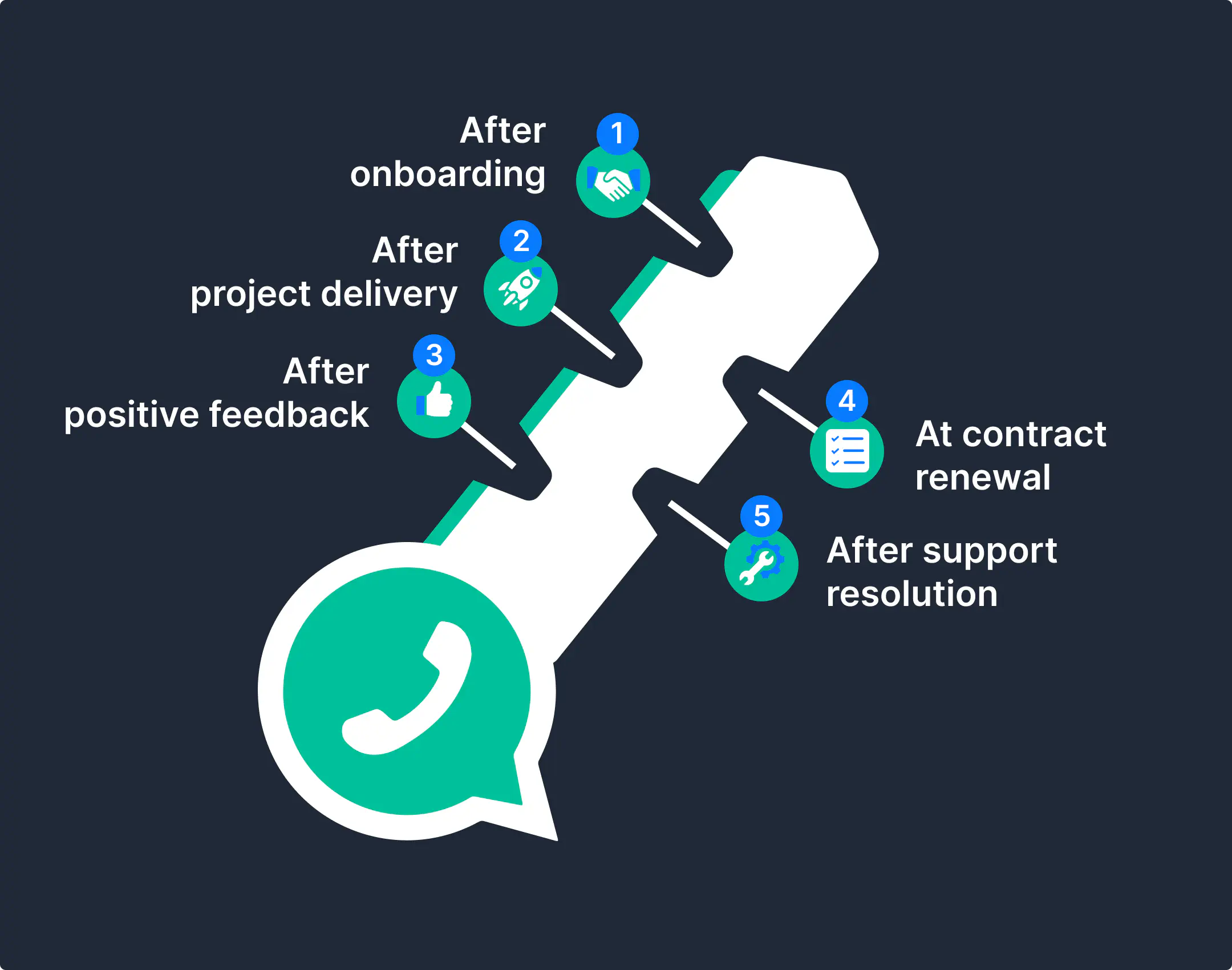
The best time to ask is when the customer is happy and things are fresh in their mind. That’s when they’re most likely to say yes and give you something useful.
Here are a few good moments to do it:
- Right after onboarding, once they’re set up and see the value
- After a successful project or delivery
- When they send positive feedback or praise your team
- During contract renewal or after an upgrade
- After a support issue is solved quickly
On WhatsApp, it’s easy to label conversations based on their current status. Ex: you can group customers who shared positive feedback under one label to make it easier to follow up with referral requests.
However, it can be easy to miss a praise message when your agents are dealing with a high volume of conversations.
5. Offer incentives
If there’s something in it for them, customers are more likely to refer. Here’s what you can do to encourage them to take action:
- Choose simple rewards that are easy to deliver, like a discount, account credit, gift card, or early access to a new feature
- Make the reward clear when you send the referral message, so they know what’s in it for them
- Mention if their friend will get something too. This often increases the chance they’ll share
- Track who referred whom so you can follow up and send the reward
- Always follow up with a thank-you message.
6. Promote your referral program
With WhatsApp, you can run a campaign and target all happy customers at once. Just make sure the messages are short and personalized.
Here’s how to do it:
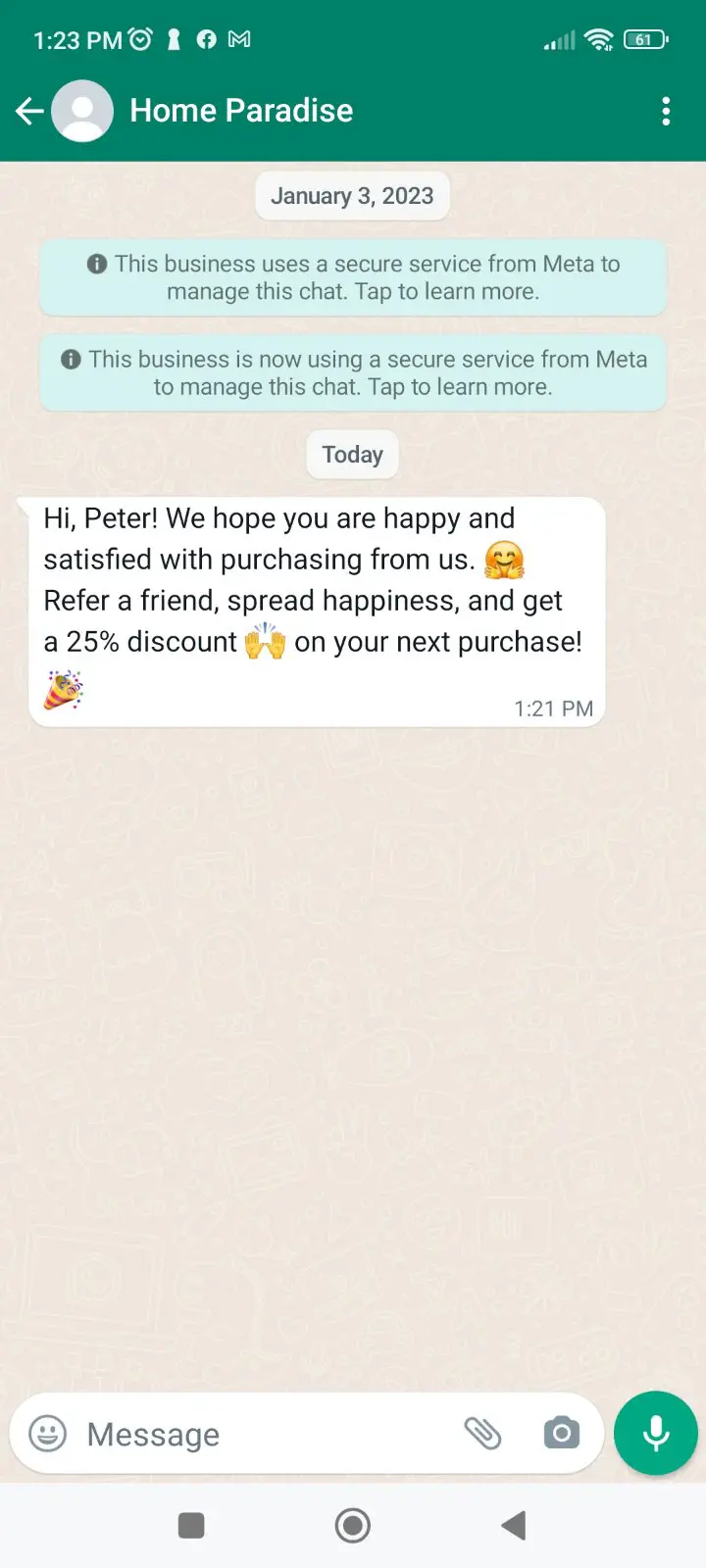
- Create a broadcast list with customers who recently had a positive experience.
- Write a short, friendly message that explains the referral offer and includes a link or code
- Send at a moment when engagement is high (e.g. after a product launch, milestone, or new feature rollout)
- Review replies and tag customers who show interest, so you can follow up later
7. Track referrals
Tracking is usually where referral efforts fall apart. You get a few new leads but have no idea who sent them. That makes it hard to say thanks or know what’s working.
If you’re using WhatsApp, you’ll need to be a bit creative unless you have a system in place. Here are a couple of tips:
- If you have a referral system, give each customer a unique code or link
- If not, just ask every new lead: “How did you hear about us?”
- Note down their answer manually or in a shared sheet
- Tag customers when they refer someone
How the WhatsApp Business Platform helps with referrals
Running a referral program or even a one-off campaign on the WhatsApp Business App is doable, but hard to scale. It’s manual, inconsistent, and difficult to manage.
The WhatsApp Business Platform, on the other hand, helps you stay efficient and consistent. It allows you to automate referral conversations, gives your team the tools to collaborate, and makes it easy to track who referred whom.
Automate referral asks
If you’re using a CRM connected to WhatsApp, you can set up automated workflows that send referral messages at the right moment.
For example, you can:
- Trigger a message right after a customer gives a high NPS or CSAT score
- Follow up automatically once an onboarding flow is complete
- Send a referral ask once a support ticket is marked resolved
Scale up and personalize your outreach
With the WhatsApp Business Platform, you can create message templates with placeholders for the customer’s name and a unique referral link. This will help you scale your outreach while personalizing your messages.
Make sure you tailor your referral messages to specific customer segments, like those who recently had a positive experience, left a good review, or gave you a testimonial.
The WhatsApp Business Platform allows you to scale your referral campaigns without limits. Unlike the WhatsApp Business app, which caps broadcast lists at 256 contacts, the Platform lets you reach as many customers as you need.
Track and tag referrers in your CRM
Assign each customer a unique referral link or code so you can trace every new lead back to the person who referred them. When a referral comes in, their name, link, and interaction history are automatically logged in your CRM.
This allows you to:
- Easily track who referred whom
- Tag top referrers for future follow-ups, rewards, or campaigns
- See which messages, segments, or timing lead to the most successful referrals
- Optimize your referral program based on real data
Conclusion
Referrals don’t have to be complicated. If your support team is already building trust with customers on WhatsApp, you’re halfway there. The key is to ask at the right time, make sharing easy, and follow through.
The WhatsApp Business App works if you’re starting small. But if you want a referral process that’s scalable, trackable, and runs without depending on individual agents, the WhatsApp Business Platform gives you the tools to do it right.
Frequently Asked Questions

Miodrag is a seasoned WhatsApp marketing expert with over 15 years of experience in B2B sales and communication. Specializing in the use of WhatsApp Business API, he helps businesses use WhatsApp’s marketing features to grow their sales and improve customer engagement. As one of the early adopters of WhatsApp Business, Miodrag has a deep understanding of its tools and strategies, making him a trusted authority in the field. His insights have helped many businesses with their communication strategies to achieve measurable results.



